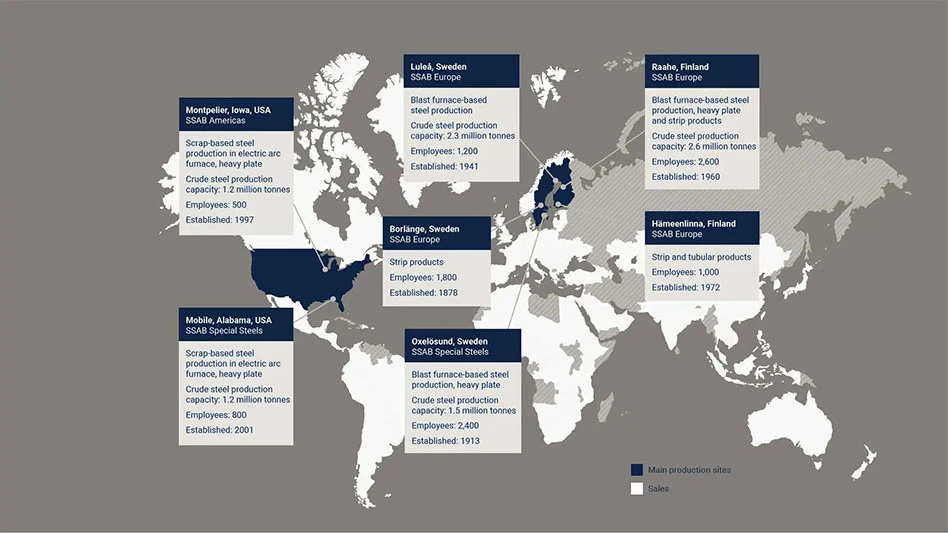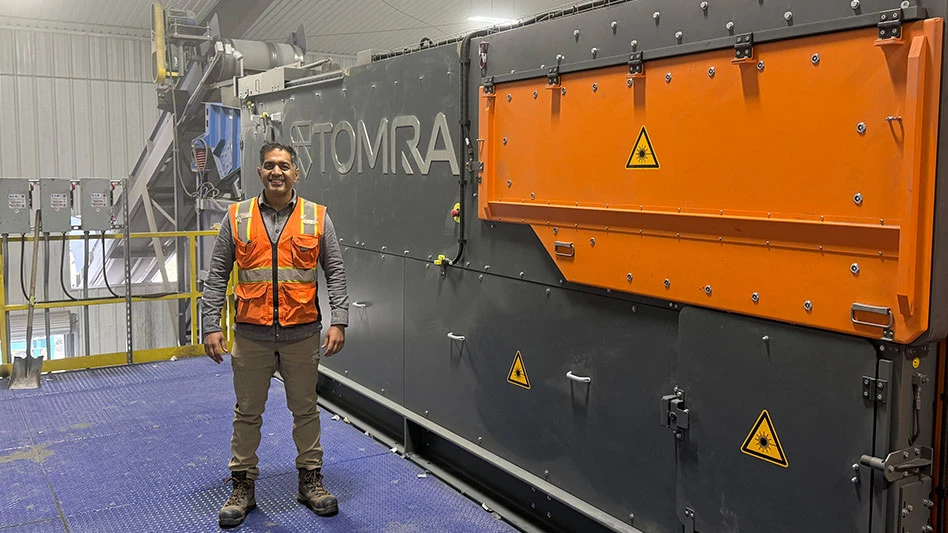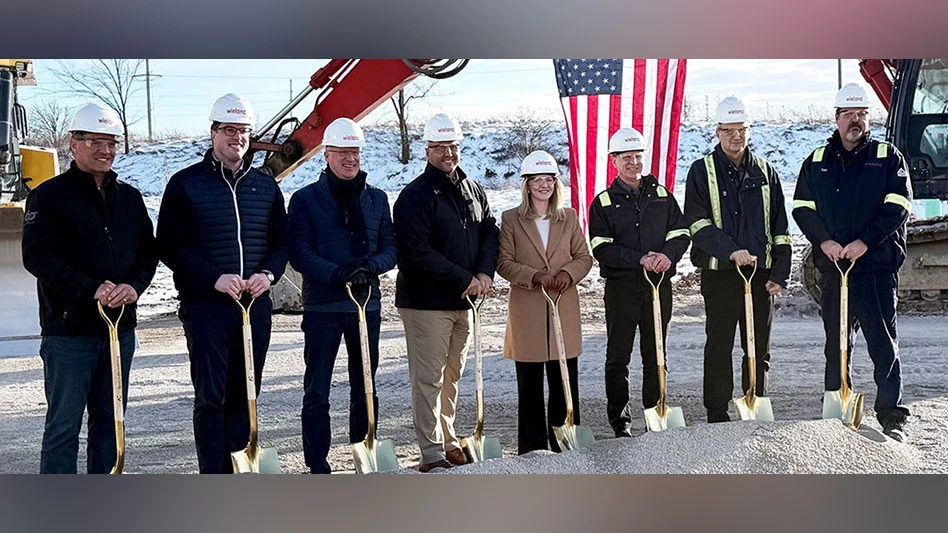
Photo by DeAnne Toto
As cargo theft becomes more strategic and sophisticated, metal recyclers need to adopt comprehensive risk management strategies, according to law enforcement and insurance experts who spoke during the session Freight & Material Theft: Mitigating the Risk during the Recycled Materials Association (ReMA) 2025 Conference & Exposition May 12-15 in San Diego.
Thieves are more strategic
“Everyone is likely to get hit” by cargo theft at some point, said James Final of the California Highway Patrol.
He added that most cargo theft incidents he deals with involve fraudulent pickups where an individual poses as a broker and hires an unwitting driver to pick up a load from a distribution center. That driver is redirected to a cross-dock or warehouse, where the cargo is offloaded and immediately picked up by the crooks. At other times, the thief will present a fraudulent ID to collect the load.
Keith Lewis, vice president of operations at CargoNet, said diversion and fraud account for 40 percent of the overall cargo theft problem, which often is executed through phishing and social engineering.
Scott Cornell, the Arizona-based second vice president at Travelers Inland Marine, said redirected shipments or double-booking scams have become more common, with thieves using the ID of a legitimate company, hiring legitimate trucking companies to pick up loads.
Lewis said law shifting priorities and enforcement funding cuts have resulted in fewer specialized units and task forces for investigating cargo theft.
New Jersey-based CargoNet provides what it describes as “a synchronized layered solution to the cargo theft problem,” facilitating secure information sharing among theft victims, their business partners and law enforcement.
Cornell said cargo theft has spread from the coasts to the center of the country in recent years.
According to a slide shared during the session, reported incidents increased in Pennsylvania and Tennessee in 2024, though Texas, Illinois and California ranked in the top three spots, respectively, from 2020 through 2024.
Lewis said Arizona was not a hotbed for cargo theft until a couple of years ago, noting that material can be cross-docked in the state and then shipped out of the country in California, with Cornell agreeing that the state is popular for the transmovement of stolen material.
“Texas is probably high because of proximity to the border,” Lewis added. “It also could be the presence of scrap processing industries and manufacturing.”
“There no sign that these thefts are going down,” Cornell said, with Lewis adding that more than 4,000 thefts are likely to occur this year.
Cornell said cargo thefts likely are underreported. He suggested that truckload thefts could be 10 times greater, while other forms of cargo theft could be 15 percent greater.
The pandemic fundamentally changed cargo theft from unsophisticated regional crews stealing material from where it sat, Cornell said, to “sophisticated international” rings that are “feeding a global appetite for scrap” and laundering the material in the process so it can be sold in the open market.
While the unsophisticated thieves commonly sold stolen metals at a discount, these rings sell them at the going price, Lewis added.
Advice for recyclers
The panelists offered advice for recycling companies to safeguard their shipments.
Final said he’d like to see more GPS tracking of material in transit. “If I get real-time information, you're more likely for me to help you get your stuff back.” He added, “The sooner you know it's going off route or something seems suspicious … the higher the chance I’m going to find it and get it back to you or get to where it needs to go.”
He added, “Photos help immensely.” Final suggested capturing vehicle and driver information. “As long as we can get the photos, we can match that up with other cases that we're working with, other investigators within other states or jurisdictions that can say, ‘Oh, yeah, I worked a case on that guy before, and his actual true name is this. … These are the cases I have open on him.’ And we can start stacking charges.”
Lewis suggested adding better security cameras to recycling facilities but also noted there are “a lot of little things you can do that don’t cost a lot of money,” such as capturing pictures of the driver, the driver’s license and the truck, including the vehicle identification number. He said to be weary of “ghost writing,” where company names are removed and replaced with other company names, on the doors of trucks and magnetic signs.
Cornell suggested getting the driver’s phone number, too. “That driver could be being duped into something, right? So, if you figure out it’s being redirected, or you feel it's not going where it's supposed to go, you need to know how to get in touch with that driver. A lot of times, if you can get in contact with those, those drivers … they will respond appropriately.”
He also suggested that recycling companies talk to their insurance brokers to ensure they have a clear understanding of their coverage when it comes to cargo theft. “Coveragewise, we have a lot of capabilities that allow us to mitigate the theft risk with our clients,” Cornell said of Travelers, which also has a cargo theft team. “We also work directly with our clients to tech them how not to have the thefts in the first place.”
Recyclers should understand what type of insurance their freight brokers have.
Cornell said some freight brokers only carry contingent coverage, which is a type of insurance that kicks in if the carrier’s insurance doesn't cover the loss. “Usually there's a series of things that have to be met, like the claim has to be submitted to the trucking company, first. That company has to deny it or not have coverage or something like that,” he explained.
Freight brokers also can purchase Dollar One or First Dollar cargo insurance, also known as "all-risk" or "shipper's interest" policies, which provides immediate payment for approved claims, paying the full value of the goods.
If a GPS tracker shows that a load has gone off course, Final said the recycler should call the broker first as the load could have been redirected for a valid reason. If that is not the case, recyclers should call law enforcement in the jurisdiction where the load was picked up. While that agency might not act on the theft apart from filing a police report, he said, the cargo will be in the system as stolen, and then the recycler can call the agency where the cargo was last shown to be.
Latest from Recycling Today
- Eriez expands European sales network
- Gränges increases sales volume in 2025
- Aduro selects Netherlands as site for industrial scale-up facility
- Nasco-Op declares dividend
- Cyclic Materials announces plans for South Carolina campus
- WM reports revenue, earnings growth in Q4 and full-year 2025
- Solarcycle’s Cedartown, Georgia, recycling facility opens
- Stadler equips Spanish MRF





